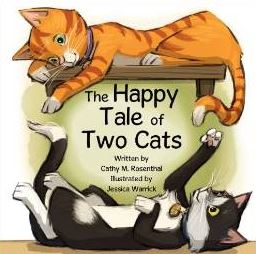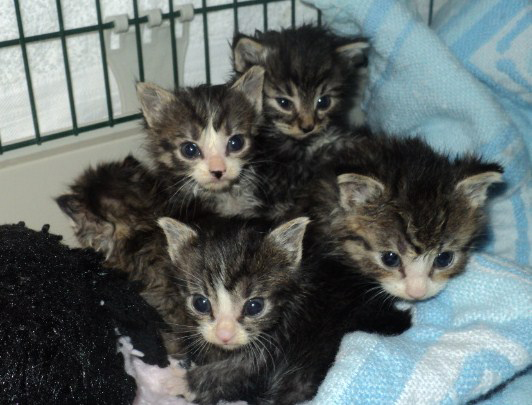Having trouble viewing this email? View it in a web browser.
|
Share this newsletter with your social network:
|
|||||||
|
December 2014
According to a new study, Canada gets a “D” when compared with 50 other countries. The rating is a reflection of Canadian policy and legislative commitment to animal welfare and protection. Though there have been recent improvements to the codes of practice for cattle, pigs, horses and sheep, the laws don’t reflect society’s change in attitude since the anti-cruelty law was drafted more than 100 years ago. Animals are still considered property, not sentient beings capable of suffering. The study also looked at the treatment of animals in captivity, animals used in research and testing, and protection of wildlife beyond just preservation of species. Read the full story here.
Happy the cat has all the things a cat should have: a loving family, comfortable home, toys, a scratch post, regular visits to the vet and an ID tag in case she gets lost. Down the street from Happy lives another cat without any of these things. This cat doesn’t have a name; she is known only as the unhappy cat. It is only when the unhappy cat’s guardians move away and leave her that she begins to transition – slowly, and with the help of kind people – into a happy cat herself. From the abandoned house to the animal shelter and eventually her forever home, she finds safety, friendship and love. The Happy Tale of Two Cats tells a sweet and memorable story of what can happen when caring people in the community all take a part in turning an animal’s life around. It addresses the importance not only of physically caring for our feline friends, but also being companions to them. With a perfectly happy ending and excellent illustrations that help tell the story, this book will warm the heart of any cat lover. For dog lovers, The Lucky Tale of Two Dogs, written and illustrated by the same team of Cathy M. Rosenthal and Jessica Warrick, tells a similar story. These books are recommended for readers in Kindergarten and up. Read more BC SPCA book recommendations.
Chocolates, tinsel, and small toys abound at Christmas – and if any of these are ingested by your pet, it could be serious. Plants such as amaryllis, holly and mistletoe can be toxic, as can plant food added to Christmas tree water. (For a full list of plants and people foods toxic to pets, visit aspca.org/apcc.) As a club, consider making a poster or even an announcement at school to inform others about these hazards. No one wants to spend Christmas at the emergency vet clinic. Learn more about other hazards to avoid this holiday season.
|
Click on a lesson plan below to learn more.
Kindness Counts
Companions for Life
You Can Make a Difference
Cluck - The life of an egg-laying hen (Gr. 4-6)
Bite Free (K - Gr. 5) Bite Free is on the recommended resource list for Health and Career Planning for grades K-5.
Please email us your questions and comments.  Informational DVDs and BC SPCA merchandise available at shop.spca.bc.ca |
||||||
|
You are receiving this BC SPCA e-Teacher newsletter to because you have subscribed or are affiliated with a BC SPCA School Club. Login to update your contact information and email subscriptions or unsubscribe (we're sorry to see you go!). On behalf of all the animals we care for and protect, thank you for your support. |
|||||||


 What grade does Canada get on animal
protection and welfare? The answer may surprise you.
What grade does Canada get on animal
protection and welfare? The answer may surprise you.
 The
Happy Tale of Two Cats
The
Happy Tale of Two Cats
 The holiday season can
create disruptions in routine and diet not just for people, but for pets, as
well. It is important to be aware of some hazards that may cause an animal to
behave differently or make them sick. If
your pet is acting up he might be trying to tell you he doesn’t like this new
schedule… or maybe he got into something that he shouldn’t have.
The holiday season can
create disruptions in routine and diet not just for people, but for pets, as
well. It is important to be aware of some hazards that may cause an animal to
behave differently or make them sick. If
your pet is acting up he might be trying to tell you he doesn’t like this new
schedule… or maybe he got into something that he shouldn’t have.







